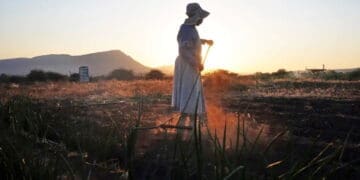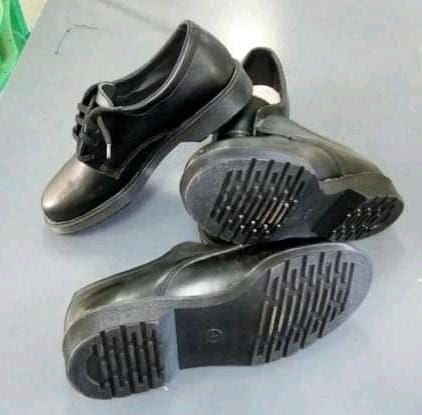By Excel Fongoma
Industry experts project that South Africa’s revenue in the footwear sector will grow extensively this year with the volume of the market set to reach a whopping 91.2m pairs by 2029.
This projection by market research company Statista augurs well for local footwear manufacturers such as Blackfoot Shoes, which was registered in 2021 and is owned by Thabiso Gift Lesawana. He resides in Katlehong in Ekurhuleni.
The founder’s passion for fashion and footwear design stems from a young age when he combined his love for craftsmanship and visual art to create unique shoe concepts from recycled materials. With a natural talent for drawing and painting, he also engaged in community-based projects such as street art and technical assignments for local school children.
“My entrepreneurial journey began when I joined the Footwear Manufacturing and Technology learnership at the Vaal University of Technology in 2018, laying the foundation for my future in the footwear industry.”
However, the path to success was not without obstacles. The Covid-19 pandemic proved to be one of the biggest challenges, significantly limiting the founder’s ability to operate his business and make sales.
“The lack of essential equipment, including sewing machines and printing tools, further strained the growth potential of the business,“ Lesawana explained.
Despite these difficulties, the founder’s resilience shone through.
“Purchasing a second-hand sewing machine allowed him to pivot and begin producing essential facemasks. The decision to employ local people to produce these facemasks not only provided much-needed income, but also resulted in the donation of masks to those in need,” he added.
Since 2023, Blackfoot Shoes has gained momentum and increased support within the local community. The brand is now recognised nationwide, and its founder believes that further marketing efforts and improved product distribution are the next steps to achieving greater success.
Social media platforms, including Facebook, WhatsApp, TikTok and X have played a pivotal role in helping Blackfoot Shoes expand its customer base.
The founder’s hands-on approach to marketing, wearing his brand full-time, has created authenticity and a personal connection with customers.
Additionally, word-of-mouth marketing, distributing business cards and pamphlets, as well as media exposure through radio and newspapers, has bolstered the brand’s visibility.
Looking to the future, Blackfoot Shoes has set ambitious long-term goals. The founder envisions establishing a leading footwear manufacturing factory in South Africa, distributing products both locally and internationally. In addition to business expansion, the brand aims to combat socio-economic issues in South Africa by addressing unemployment, poverty, and the lack of technical skills through a planned skills development centre.
Lesawana.advises aspiring entrepreneurs in the fashion and footwear industry on the importance of personal development, including honing soft skills like communication, time management and consistency.
He recommends that to entrepreneurs to master their products, they must understand market trends and be prepared for the competitive nature of the industry. Financial education and spiritual resilience are also essential for overcoming the challenges that come with building a sustainable business.
“Blackfoot Shoes aims to have not only built a strong local presence but also established itself as a global brand that contributes to the broader community and the development of South Africa’s workforce,” he said..
































































